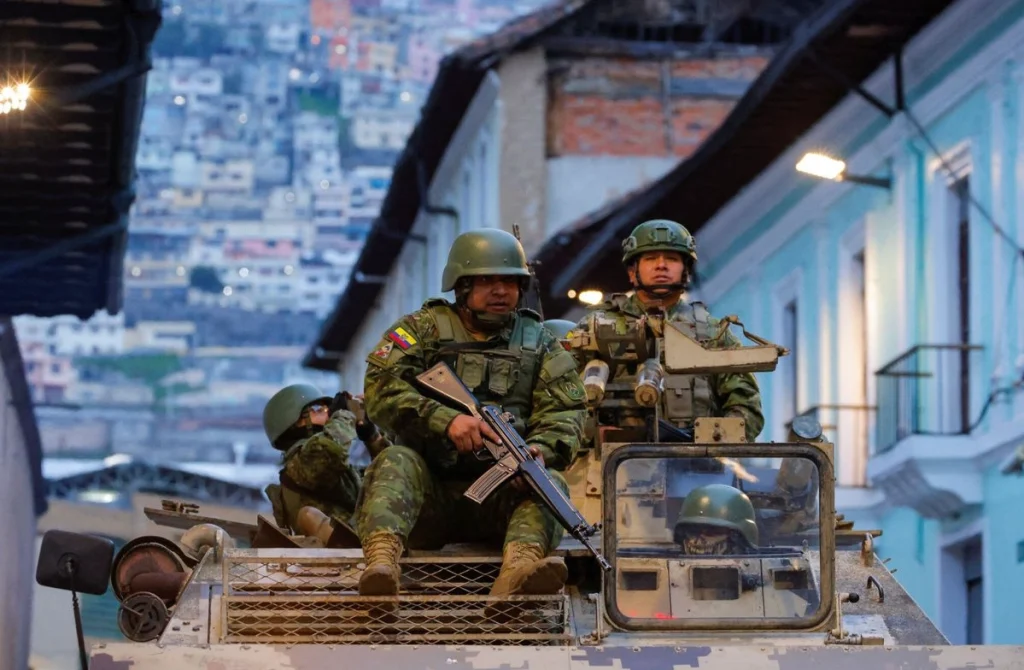
The precarious calm of the country after the decree already gives the president very high support. With a doubled legislative majority, Noboa relaunches neoliberal austerity and the search for mining investments, invoking the costs of peace.
Por Franklin Ramírez (latinoamerica21)
HAVANA TIMES – Ecuadorian President Daniel Noboa declared “internal armed conflict” on January 9, 2024 after an outbreak of criminal violence during the first week of the year. Specialized voices of International Humanitarian Law immediately questioned the suitability of such a figure. In the country, beyond the persistent violence, there would not exist other conditions (centralized organizational structures of armed groups, capacity for coordinated action, willingness to dispute state power, among others) that make it plausible to affirm the existence of such a type of conflict.
The question was posed for the prosecution of the institutions. However, nothing was said by the National Assembly on the matter. Its support for Executive Decree 111 was unanimous. On January 11, for its part, the Constitutional Court ruled that two agreements with the U.S., which underpin the war strategy, did not need to pass through parliament — as required by the Constitution for certain international treaties and could be ratified directly by the Head of State. The alignment of the public powers with the so-called “war on terror” knows no fissures. All institutional gears shield President Daniel Noboa and his military front in a dynamic that operates, through the challenge of containing violence, for the re-legitimization of the power bloc eroded by five years of deplorable governments and state dismantling.
The Court’s rulings summarize well the ongoing process. For the judges, the treaties signed with the U.S. — one relating to the conditions of stay of military and civilian personnel in Ecuador and the other to operations against illicit transnational maritime activities — do not concern territorial matters nor do they imply


